Organization
Letter from the President
Dear Members,
This report outlines the actions carried out, the duties fulfilled and still pending, as well as the accounts, collections, distributions, and activities undertaken throughout 2024 to improve the management of artists’ rights. All of this has been carried out diligently by the individuals who make up our organisation, so that members—after reviewing and evaluating the data presented in this report—may either endorse or question the actions taken. It also serves to provide the public and the authorities responsible for monitoring compliance with AIE’s statutes and commitments with a clear view of the truthfulness, integrity, and transparency of our management.

ARTIFICIAL INTELLIGENCE, INTELLECTUAL PROPERTY AND COLLECTIVE MANAGEMENT
The collective management of Performers’ Rights began, in a way, with the 1961 Rome Convention. This marked the beginning of an uncertain yet fascinating journey which, over time, has led to the recognition of rights and freedoms—though not without facing many legal, organisational, and economic challenges. After more than 60 years of continuous activity and commitment, improving and refining the systems for monitoring, collecting, and distributing performers’ rights, collective management—overseen and carried out by collective management organisations—plays a vital role in protecting artists’ rights around the world.
It is no secret that we are in a time of profound change and transformation regarding the systems and structures for managing and defending these rights. We must ensure that this new cycle leads to the consolidation of artists’ values, the security of fair remuneration for the commercial use of our work, and the affirmation of collective management as the best system for representing and managing intellectual property rights.
It is also both a right and a duty to respond—socially and legally—to the conventions and rules being imposed by the tech industry, which often undermine and call into question the intrinsic value of creation and performance, as well as the effectiveness of collective management. These forces promote “generation” as a substitute for creation, relying on massive algorithms that absorb everything circulating across networks, media, publications, and all kinds of public and private content. This amounts to a vast global archive of diverse content, appropriated without the permission of the creators, performers, and producers—the rightful owners of these works, performances, and productions that have been effectively expropriated.

Using this illegally obtained content, the large corporations developing AI systems can extract fragments (tokens) and offer so-called “generation” services—thinly veiled as creativity—that effectively mimic or replace composition, performance, writing, image creation, and more. This is a disgraceful display of appropriation and speculation, one that must be firmly addressed by law.
Starting in the summer of 2023, technologies like HeyGen began demonstrating an alarming ability to clone voices with striking realism—achieved with minimal training data. This quickly triggered strong reactions across the audiovisual industry. Actors and screenwriters in Hollywood went on strike, voicing concerns over the unregulated use of AI. Actors feared that their voices and digital likenesses could be used without their consent and without fair compensation. Screenwriters, meanwhile, were concerned about being replaced by automated technologies.
Advances in generative artificial intelligence
Generative AI has made astonishing progress in just one year. ChatGPT is now capable of hearing, speaking, seeing, writing, generating music, producing sound, painting, and performing a wide range of functions—often within seconds.
Models such as OpenAI’s GPT-4V and DALL·E 3, introduced in 2023, enabled advanced visual recognition and image generation with unprecedented ease. In February 2024, OpenAI unveiled Sora, a model capable of generating hyper-realistic videos several minutes long. Just a month later, tools like Suno and Udio made it possible to generate music in any style with advanced customization, marking a milestone in AI-generated music. They called it music creation.
Today, with an ordinary device, anyone can access platforms listing a wide range of AI companies capable of imitating, transforming, evolving, and GENERATING virtually anything—and more—in a matter of seconds. It’s something astonishing and previously unimaginable.
These technological systems offer the public simple music generation tools, either for free or at a very low cost. Anyone can now generate songs, compositions, lyrics, music, and instrumentation drawn from the vast pool of data that algorithms have extracted from nearly the entire creative and artistic memory of humanity—data based on human creation and performance. It represents a level of appropriation of human creativity and labor unlike anything we’ve ever seen before.
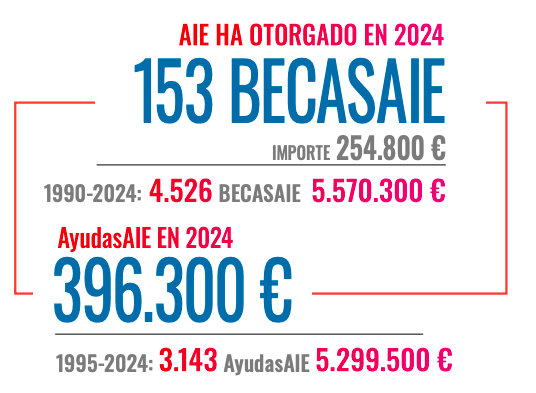

All of this data—now widely known and experienced—reveals the immense power these companies hold and the profound impact they are poised to have on individuals and entire industries if adequate and urgent controls and regulations are not defined and enforced. This also includes the implications of such systems serving as data sources for other AI companies that have already emerged and are actively operating.
AI seeks to redefine creativity, performance, and creation in general, enabling the automatic generation of text, images, videos, and music. This so-called “progress” raises serious concerns about intellectual property rights and fair compensation for original creators, performers, and producers. Current technologies capture and blend data from existing works and performances to generate new content, posing a direct threat to the value and recognition of human composition, performance, and artistic creation.
Ethical challenges and the need for regulation
The use of AI in content generation—aiming to substitute human creativity—has sparked widespread controversy, alarm, and even panic. It highlights the urgent need for a robust legal and regulatory framework to ensure respect for and protection of human artistic creation.

AI must serve to facilitate creativity and generate benefits for the community—without obstructing creative processes or displacing the vast number of individuals who risk losing their jobs due to the overly optimistic belief, now widely spread, that AI will create far more jobs than it will eliminate. Serious studies have already shown the opposite.
AI promises to enhance human creativity
Tech visionaries claim that “artificial intelligence has the potential to revolutionize the creative industries.” We do not doubt it. But its integration must be handled with care, proper legislation, and full respect for creators’ rights.
The multinational empires driving AI no longer speak of composing or creating—they proceed step by step: “generation.” In doing so, they attempt to equate human creation, composition, and performance with generation, a product derived from data captured by opaque systems, stored who knows where, and processed by massive algorithms simulating thousands of human brains working simultaneously to generate millions of texts, songs, images, paintings, voices, and more.
Their ultimate goal: to equate the value of generation with that of human composition and performance—artistically, socially, and commercially—undermining the perception and worth of what we see and hear. First, they take a slice of the market; later, they aim for the majority of rights and revenues stemming from public communication and the use of these technological innovations. Meanwhile, those of us who created and performed the original works will receive little or nothing in return.
HUMAN CREATION and PERFORMANCE vs. Artificial GENERATION—via copying and real, not artificial, manipulation. This is the challenge we face—one that legislators and governments must urgently address out of respect, dignity, justice, and social responsibility. It is a global demand from creators, artists, and producers around the world. And it must be heard.
AI trolls are invading jobs, replacing human roles and skills, and displacing employment. In the very near future, this trend will only accelerate.
We keep hearing that Artificial Intelligence will “enhance human creativity.” But the truth is, these technological advances challenge the very definition of human creativity—while pushing a self-serving narrative about what should and shouldn’t be considered art.
The pseudo-gurus of invasive technology proclaim:
“The reality is that today, it would be unthinkable to imagine a painter, architect, designer, illustrator, voice actor, musician, filmmaker, or any creative professional who doesn’t use the latest technological techniques and tools available.”
This is an ignorant and self-serving statement from opportunists and companies seeking to turn AI into a massive business that reaps millions of subscribers and profits that rightfully belong to others. This goes against centuries-old conceptions of creation and interpretation—a direct challenge by technology to human creativity, through Generative Artificial Intelligence.
Do they really believe it’s impossible for there to be geniuses in our present and future, like Picasso, Beethoven, Marie Curie, Charles Dickens, Cervantes, Aretha Franklin, Julio Verne, and countless other artists and creators of all kinds who have gifted humanity with immortal works? Of course, such geniuses exist and will continue to exist—if we have the wisdom to place these technological options in their proper context.

AI is a vast brain-machine, composed of thousands of interconnected computers, used to compete against rights, unique and personal work, and against the common sense that those of us who still believe in the person over the machine, and personalization over programmed conceptualization, continue to uphold.
PERSON vs CONCEPT
Creation, interpretation, art, work, emotion, and rights must win this battle and position technology and Artificial Intelligence as tools that do not dismantle art and freedom of rights, driven by the whims and ambitions of multinational companies and executives eager to control humanity even more.

Artificial Intelligence can and should help save lives, advance research, and provide systems for progress, but it should not replace or subvert the values that humanity has acquired, respected, and shared.
We advocate for the predominance of the person, their attributes, values, and rights, over the machine with its copies and impressive summaries and compilations, which are neither creations nor interpretations. We must stay vigilant to ensure that globalization does not hinder personal, individual, and human creativity. We must ensure that Artificial Intelligence does not obstruct or replace human activity. AI should be a tool at the service of humanity.
As a rejection of invasive and uncontrollable technology and the rules imposed by the global tech and content market giants, the creative community—authors, artists, producers, and management entities—must demand more advanced and precise legislation than that adopted by the EU.
Legislation that allows technology and AI to advance, develop, and progress in their study and development, while placing the human being and their work at the center of the debate on creation, work, values, and human rights.
Artificial Intelligence has arrived to stay, but not to take what is ours, invading our creations, interpretations, roles, and tasks, and usurping our creative, productive, and vital space.
A society that protects objects more than ideas is sick
It is possible that this collection of good intentions, derived from a deep analysis of reality, may seem utopian, but pursuing utopias can sometimes lead to good realities. Especially when dystopias begin to settle into the general sentiment.
We urge legislators, the government, and public and judicial authorities to protect the fundamental basis of culture, identity, and respect for the creation, interpretation, and work of human beings in a society oriented toward the well-being of people, talent, effort, and work—values that should guide art, the right to freedom, and fair compensation.
Positive data
In 2024, for the first time in AIE’s history, we have surpassed 50 million euros in annual ordinary collections: 50.9 million euros, which is a 16.05% increase from 2023. The global collection has also reached the record figure of 57.4 million euros, a 2.46% increase from 2023 and 18.3% more than the budgeted amount.
We have extended for 10 years the maintenance of the Joint Collection Body with AGEDI, as well as the creation of the new AIE-AGEDI Collection Office. This will allow us to develop and improve the collection process.
The recent agreements reached with Movistar, Antena 3, and Netflix encourage us to look to the future with optimism.
At AIE, after an intense period of work, we have successfully brought together 20 collective management organizations at our Barcelona headquarters and, together with these organizations, we have created IMARA (International Music Artist Rights Alliance), an international organization to defend the rights of artists worldwide.
In 2024, we distributed 44.3 million euros to 17,432 direct members and international artists through the 111 reciprocity agreements we have signed and are active with 82 organizations from other countries.
We have managed to reduce the administration fee in 2024 to 10.35% of the annual ordinary collection. The AIE Service Charter, created in 2015, has achieved a compliance rate of 99.99% over the 13,672 services provided in 2024.
The AIE Corporate Social Responsibility Report is available on the AIE website and showcases AIE’s commitment to responsible practices at the social, environmental, and economic levels. The surveys we conduct each year to gauge the opinions of our members reveal a satisfaction rate of 9.2%.
We live in a time marked by uncertainty but also filled with opportunities. It is essential to adapt, defend what has been achieved, and continue fighting for the protection and recognition of rights, intellectual property, and respect for those dedicated to the noble art of music.
Thanks to our management team, staff, board of directors, governing bodies, and collaborators. They all inspire us to keep working with enthusiasm and dedication.
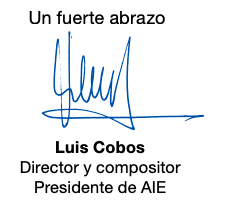 Luis Cobos
Luis Cobos
Director and Composer
President of AIE
Biography of the President
Orchestra conductor and composer. He has composed orchestral music, film soundtracks, music for theater, television, and more.
Luis Cobos has earned over 100 Gold, Platinum, and Diamond records. His sales exceed 15 MILLION COPIES.
Luis Cobos has conducted: The Royal Philharmonic Orchestra, Vienna Symphony Orchestra, Moscow Symphony, Los Angeles Symphony (U.S.A.), Beijing Symphony (China), European Symphony, London Symphony, Kansai Philharmonic (Japan)…
Luis Cobos ha dirigido en España, Inglaterra, Francia, Estados Unidos (EEUU), China, Japón, Alemania, Italia, Holanda, Austria, México, Argentina, Colombia…
Luis Cobos has worked with: Plácido Domingo, Julio Iglesias, Pedro Vargas, José Carreras, Mecano, Antonio Banderas, Isabel Pantoja, Paco de Lucía, Ana Belén, Nino Bravo, Joaquín Sabina, Antonio Flores…
OTHER ACTIVITIES
President of the Spanish Society of Artists AIE, president of the Iberoamerican Federation of Artists, FILAIE, former president of the European Group of Artists GIART, director of the “Tierra de Gigantes” International Music Festival, honorary director of the Primitiva Band of Llíria, chairman of the Board of Trustees of the “Latin GRAMMY® Cultural Foundation”, former president of the Latin Recording Academy’s Board of Trustees, vice president of the Spanish Academy of Arts and Sciences of Music, founding president of the University of the Arts Council, and founding president of the Ibero-American Forum of the Arts.

Governing Bodies
AIE is managed by the following Governing Bodies:
Executive Committee
It is the governing body in charge of the management and administration carried out by AIE. The Board of Directors consists of 30 members (President, three Vice Presidents, Secretary and 25 Board Members), all of them performers or executants and active members of the Entity. The President of the Board of Directors is Luis Cobos.
President

Luis Cobos
Vice Presidents

Luz Casal

Nacho García Vega

Montserrat Pratdesaba
Secretary
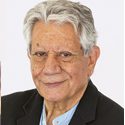
Pepe Sánchez
Board Members

Anni B Sweet

María Toledo

Gerardo Núñez

Pasión Vega

Juan Luis Calceteiro

Alba Carmona

Javier Campillo

Laura Simó

Antoni Mas

Mónica Moss

José Luis Nieto

Montserrat Teruel

Salvador Barberá

Xacobe Martínez

David Morales

Enrique Perdomo

Claudio Ianni
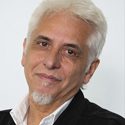
Ximo Tebar
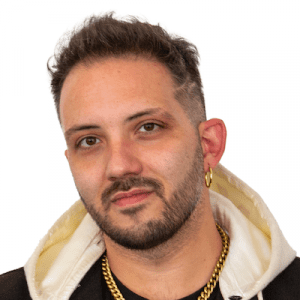
Eduardo Figueroa

Gaspar Montesinos
Permanent Committee
Comisión permanente
Presidente Luis Cobos
- Luz Casal
- Juan Luis Calceteiro
- Javier Campillo
- Nacho García Vega
- Pepe Sánchez
- Director general José Luis Sevillano
- Laura Simó
- Luis Mendo
- Montserrat Pratdesaba
Its main task is to ensure the continued good administration and management of the Entity. This governing body, which has executive power, consists of the President of the Entity and six other Board Members of the Board of Directors.
General Secretariat
Its core activity is the preservation and safeguard of corporate documents. The General Secretariat has the faculty to certify all kinds of corporate acts and agreements.
Working Committees
Comisión de reparto
Responsable Montserrat Pratsedaba
- Salvador Barberá
- Juan Luis Calceteiro
- Claudio Ianni
- David Morales
- José Luis Nieto
- Gerardo Núñez
- Laura Simó
Comisión de fondo asistencial y cultural
Responsable Luis Mendo
- Javier Campillo
- Nacho Gª Vega
- Antoni Mas
- Annie B Sweet
- Pasión Vega
- Alba Carmona
- Xacobé Martínez
- Mónica Moss
- Montserrat Teruel
Comisión de admisión y calificación de socios
Responsable Pepe Sánchez
- Eduardo Figueroa
- Gaspar Montesinos
- José Luis Nieto
- Enrique Perdomo
- Ximo Tébar
- María Toledo
Organigram
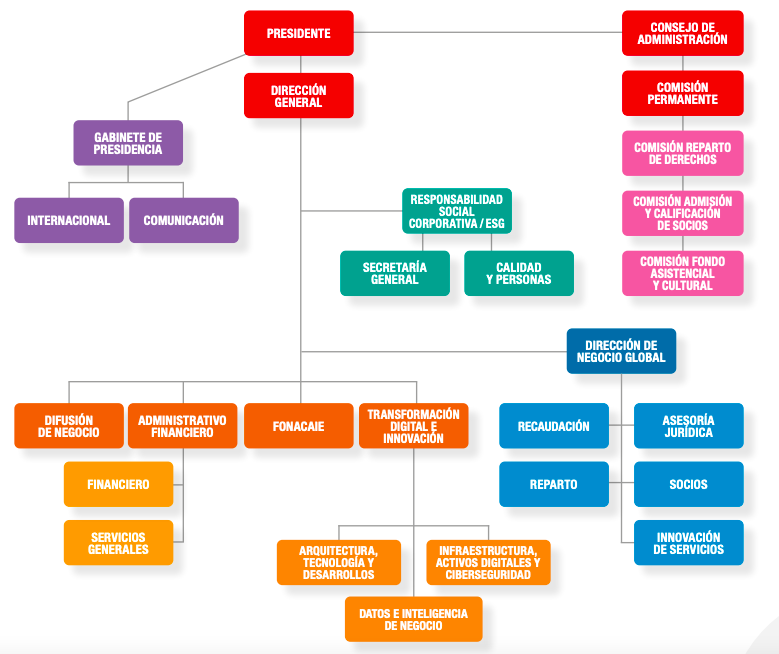
MANAGING DIRECTOR
José Luis Sevillano Romero
Business Development
Pedro Gómez Guirao
Director
Aida Álvarez Aramendi
BUSINESS OUTREACH MANAGER
ADMIN-FINANCE DEPARTMENT
Rocío Navarro del Águila
Director
- Finance
Ana Mª Campillo López
Head
Raquel Arenas Ruz
Ana Díaz Escribano
Mª Ángeles Jemes del Saz
Esther Mínguez Tejeiro
Rocío Portela Carballeira
Javier Rodríguez Rascón
- General Services
Enrique Anca Julián
COORDINATOR
Verónica García García
Carlos Perales Núñez
Alfredo Pérez Sánchez-Mayoral
Pedro Tera Martínez
FONACAIE
Carlos Pastor Pastor
Director
Cristina Araque Pérez (Barcelona)
Lourdes Estrada Muñoz
Beatriz González Román
Mabel Prado Buendía
Lorena Quereda Ruiz
Desireé Rodríguez Medina (Sevilla)
Tatiana Romero García
Laura Sagaz Morcillo
Gema Sánchez Torres
Digital Transformation and Innovation
Sergio Ramos Villaverde
Director
- Architecture, technology and developments
Enrique Godino Esquivias
Head
- Infrastructure, digital assets and cybersecurity
Iván Prados Velasco
Head
Miguel Ángel Cosgaya Hernángomez
Erick Hernández Arias
Raúl Muñoz Ruíz
- Data and business intelligence
Cristina Armuña González
Head
Corporate Social Responsibility / ESG
Carmen Roque Páez
Director
- General Secretariat
Patricia Pérez Ayuso
- Quality and People
Irene Alonso Espinosa
Cecilia Cantero Ruiz
Idoia García Fernández
PRESIDENCY, INTERNATIONAL AFFAIRS & COMMUNICATION
- CABINET OF THE PRESIDENT
Diego Castaño Moreira
Director
Silvia Pérez Pérez
Presidency Secretariat Manager
Álvaro Alonso Mendoza
Blanca Boj Barahona
Irene Majadas Carmona
Sumika MatsumotoMiho
Ignacio Olalla Jaime
Global Business Management
Álvaro Hernández-Pinzón García
Director
- Revenue collection
Pedro Gómez Guirao
Director
- LEGAL DEPARTMENT
Paloma López Peláez
Head of International Area
Pedro Rivas Prieto
Legal Manager – Litigation
Greta Seitl Bengoa
Regulatory Compliance
Coordinator
Elena Barroso Martín
Verónica Pérez Aganz
Fernando Viñuales Carrera
- REPARTO
Olga Madera Lastra
Head
Óscar Cortés Medina
Project Implementation
Manager
Miguel Cubedo Vicén
International
Manager
Beatriz Díaz Sánchez
Rosa González Arroyo
Mila Lasa García
Susana López Cervilla
Esperanza Martín Escudero
Purificación Molinero Solas
Julia Moya Fuentes
Irene Novillo Fernández
Aleida Núñez López
Pilar Rodríguez Lama
Susana Román Sánchez
Asunción Tamayo Gallego
Documentation
Manager
Ana Vázquez Romero
- Partners
Fernando Prados Velasco
Head
Nuria Rojas Cuenca
Branch Coordinator
Cristina Araque Pérez (Barcelona)
Aida Capell Amado (Barcelona)
Bienvenida García Coronel
Brezo González García (Sevilla)
Paloma Hormigos Mera
Isabel Llorente Martín
María Muñoz Madroñal (Sevilla)
Mario Pato Esteban
Eva Rubalcaba Blanco
Noelia Salas Muñiz
Julia Villalta Moreno
Diego Zavala Boogen
- Service Innovation
Alberto Arenal Cabello
Head
Marta Villarubia Díaz

